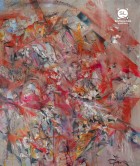This interview is part of SmokeLong Quarterly’s Global Flash Series and accompanies Tang Fei’s story “熊貓飼養員 / Panda Breeder”. The English interview follows the Chinese version below.
____________________________
Tony Huang: 我們知道您的創作包括長篇小說、短篇小說、小小說等。小小說作品在您的所有創作中大概佔多大的比例?您覺得小小說創作的技法與長篇或短篇相較而言最大的特點是什麼?
Tang Fei: 目前而言,我的小説主要以中短篇爲主。寫作初期需要大量練習來磨礪技藝,塑造作者本人對文字特有的直覺性經驗,之後所謂風格和特質都是從直覺性經驗而來。中短篇這樣的長度對練習來説比較合適。不成功的那些嘗試直接扼殺在電腦硬盤中就可以。積累到一定程度后寫了兩部長篇。而小小説的創作,不時就會寫一下。因爲不考慮發表渠道,是一種絕對純粹狀態的寫作。 另外,長篇,中短篇,以及小小説,是截然不同的寫作體裁。在時間上的差異決定了在文學創作時方方面面的擇取。我認爲他們之間的區別甚至大過虛構和非虛構的區。
Tony Huang: 以前看到您的名字,經常和科幻小說聯繫在一起。此次創作《熊貓飼養員》跟創作普通的科幻小說感受上有什麼兩樣?
Tang Fei: 和科幻小説的聯係有時候還真是讓我挺困擾的。(笑)其實,對我作品最準確的定位可能是異質小説。因爲我寫東西很雜。 長篇《無名盛宴》是魔幻,接下來要出的長篇《光的屋》是現實題材。七八年前寫的第一個武俠中篇《八月風燈》到現在還有讀者追著要我接下去寫類似風格的。這些年一直以科幻寫作者的身份被大家認識,但我寫的科幻小説不少都是在摸索科幻的邊界在哪裏,換句話說,是邊緣的。那些小説里,藝術與哲學領域的深思與科學技術部分描寫和討論同時存在于我的科幻小説里。
至於《熊貓飼養員》,并不是科幻小説。它和我其他作品一樣,它出現時,已經作爲一個整體成形。然後我身體的作用就是將它寫下。至於分類是投稿時才考慮的事情。
Tony Huang: 在一個將熊貓奉為至寶的國度,您《熊貓飼養員》這個故事的靈感是怎麼來的呢?
Tang Fei: 何止是中國,幾乎整個人類世界不都是將熊貓奉爲至寶嗎?不能說我討厭熊貓。但可怕的是,我不贊同這樣一種人類中心主義態度。當然這可能和這個故事的靈感無關。我沒法回答靈感這類問題。如果我開始煞有其事地談論靈感,基本是在瞎扯。既然談到熊貓,請允許我擴展到無關話題上。由於人類活動,地球生態面臨嚴峻挑戰。大量物種滅絕。在所有的瀕危物種里,我們選擇——以人類喜好——一種物種拯救,馴化,忽視其他不那麽“可愛”“美”的物種的滅絕。你知道中國長江中下游的白鰭豚嗎?這種動物已經很美了,但是不夠“可愛”。最新的消息是快滅絕了。這種以人類喜好爲原則分配資源保護瀕危物種的方式很難讓人接受。我不反對保護喜愛熊貓,但那種深藏背後的自我感動和選擇性盲視令我厭惡。
Tony Huang: 飼養員最後將熊貓咬死,就為了看熊貓的「身體裡面是不是藏著一頭狗的靈魂」,故事的最後一句話既揭開了飼養員之所以咬死熊貓的疑團,又使得故事變成況味世事的寓言。假如您是這個故事的讀者,您覺得您得到的寓意會是什麼?
Tang Fei: 馴化和自由意志。
*
We know that your creation includes novels, short stories, flash fiction, and more. Flash fiction may take up to what percent of your creative efforts? What do you think is the most significant difference in the techniques used in the writing of flash fiction and in the writing of novels and short stories?
At present I mostly writes novellas and short stories. At the beginning of writers’ writing career, they need to shape their own intuitive experience of language through a huge amount of practice. Writers’ unique style and quality of writing all come from their intuitive experience. Novellas and short stories are of the right length for writers’ practice. The unsuccessful attempts can be buried directly in computer hard drives. After some years’ practice, I finished two novels. As to the writing of flash fiction, I try once in a while. Without aiming for publication, my writing of flash fiction is purely for the sake of writing itself. For me, novels, short stories, and flash fiction are completely different genres of writing. The differences in the time they require for creation determine the many different choices I may have to make in my writing. In my opinion, the differences between them can be even greater than those between fictive and non-fictive writing.
Your name is often associated with science fiction. What is the difference between the creation of “Panda Breeder” and the writing of ordinary science fiction?
The connection of my name with science fiction is sometimes really bothersome (laughing). In fact, the most accurate positioning of my work can be heterogeneous fiction. I write a huge variety of things. My novel Nameless Feast is fantasy, but my next novel, The House of Light, is quite realistic. My novella August’s Kerosine Lamp, published seven or eight years ago, was my first martial artd fiction, and readers now are still urging me to write more of it. These years I’m known as a sci-fi writer, but many of my sci-fi pieces are actually testing the boundaries of science fiction. In other words, they are at the margin of science fiction. In those pieces, my speculations on art and philosophy coexist with my descriptions and discussions of science and technology.
As for “Panda Breeder,” it is not science fiction. Just like other pieces of my writing, when it appeared, it had been an organic whole, and my job was to write it down. As to what genre this may fall into, this is only a thing I would consider when I submitted it.
In a country where panda has been sanctified, how do you get the inspiration for your story “Panda Breeder?”
I’m afraid pandas are sanctified not only in China. Doesn’t the entire human world all regard the panda as a treasure? I can’t say that I hate pandas, but I just don’t feel comfortable with the anthropocentrism in the protection of pandas. Of course, this may have nothing to do with the inspiration of this story. I can’t answer questions that are asking about my inspirations. If I start talking about inspirations, I’m basically talking about nonsense. However, since we’re talking about pandas, please allow me to move on to a seemingly irrelevant topic. Due to human activities, the environment of the world has been severely challenged. A large number of species are extinct. Among all the endangered species, we choose, according to our preference, a species to save and domesticate, and ignore the extinction of other less “cute” and “beautiful” species. Do you know the white fin dolphins in the middle and lower reaches of the Yangtze River in China? This animal is beautiful, but not “cute.” The latest news is that this species is almost extinct. This way of allocating resources to protect endangered species based on human preferences is a thing I find hard to accept. I don’t object to human’s protection and liking of pandas, but the self-moving and selective blindness inherent in this practice make me sick.
The panda breeder kills the panda in order to find “if in the body of this beast hides the soul of a dog.” The last sentence of the story not only unveils the secret of the breeder’s killing of the panda, but also makes the story into an allegory of the human world. If you are a reader of this story, what do you think is the allegorical meaning you will get?
Domestication versus free will.



 The core workshop of SmokeLong Fitness is all in writing, so you can take part from anywhere at anytime. We are excited about creating a supportive, consistent and structured environment for flash writers to work on their craft in a community. We are thrilled and proud to say that our workshop participants have won, placed, or been listed in every major flash competition. Community works.
The core workshop of SmokeLong Fitness is all in writing, so you can take part from anywhere at anytime. We are excited about creating a supportive, consistent and structured environment for flash writers to work on their craft in a community. We are thrilled and proud to say that our workshop participants have won, placed, or been listed in every major flash competition. Community works.